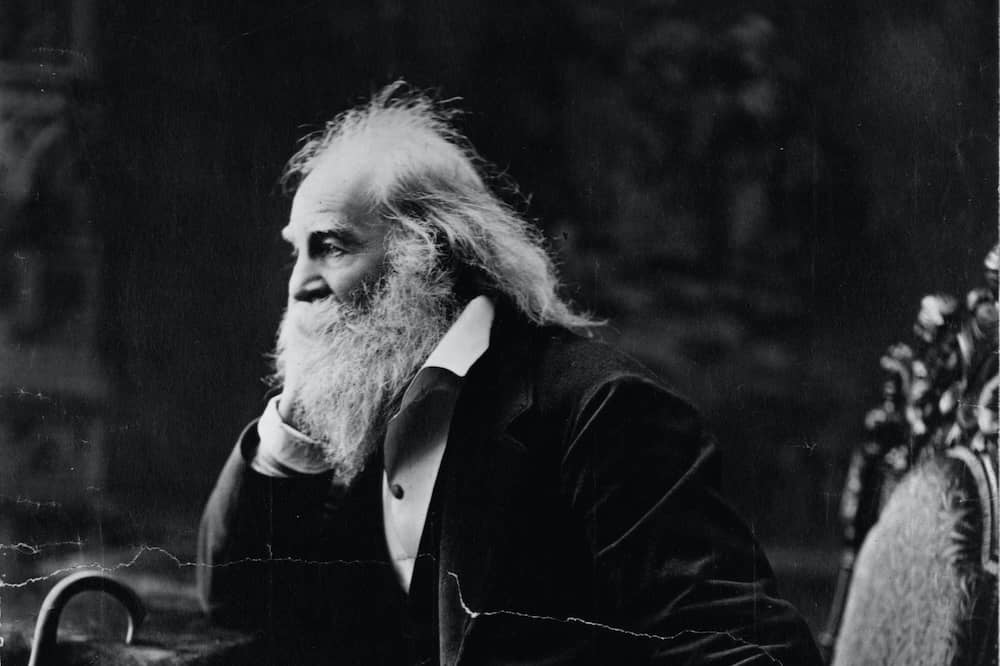Walt Whitman Biographgy

Walt Whitman, the son of Walter and Louisa Whitman, was born on the 31st of May 1819. During his childhood years, the Whitmans settled in Brooklyn before moving to Long Island, ten years after. All nine children, along with their parents, settled in Long Island beginning the 1830s.
Whitman became interested in the written word, which inspired him to become more exposed to the printing industry. He was only 12 at that time, and he was quite an eager reader. In fact, he was only self-taught, yet the young Whitman was already well-versed with several literary pieces including the Bible and works of several writers such as Homer, Shakespeare and Dante.
While in New York City, Whitman found a job as a printer, but he was forced to leave because of a huge fire that crippled the printing industry in the area. At 17, he decided to work as a teacher in Long Island. He was employed in a school house with just a single room, and he remained in this career until the year 1841. After his professional experience as a teacher, his interest shifted to journalism.
Working as a full-time journalist, Whitman founded the "Long Islander", which was a weekly newspaper in the district. Eventually, he started editing several newspapers both in New York and in Brooklyn. By 1848, he moved on to another job as an editor, but this time, he was working on the New Orleans Crescent. It was also during his stay in New Orleans where he realized the painful reality of slavery in the city.
After spending a few years working as an editor, Whitman expanded his horizons and founded the "Brooklyn Freeman". This was a newspaper that he spearheaded during the fall of 1848 when Whitman returned to the place where he spent most of his childhood - in Brooklyn. It was also here where he persevered to improve his extraordinary poetic styles that impressed numerous personalities including Ralph Waldo Emerson.
Becoming more fascinated with poetry, Whitman opted to publish a volume of his book called Leaves of Grass, in 1855. This featured a preface and 12 of his original and untitled poems. After publishing, he gave Emerson a copy before releasing a follow-up edition to his book. This was in 1856, and the book contained 33 poems including a letter he received from Emerson and a response by Whitman. The book was edited several times afterwards, and the revised editions were published throughout the lifetime of this great American poet.
During the Civil War, he became more interested in freelance journalism. In addition to this new preoccupation, he spent so much time traveling and visiting wounded soldiers in New York City hospitals. In 1862, he also went to Washington D.C, so he could take care of his brother who was badly wounded and suffering because of the war. In fact, this inspired him to remain in the city and help out in the hospitals.
Aside from his experience in this field, Whitman worked as a clerk for the city's Department of Interior. However, he was forced to leave when James Harlan, the Secretary of the Interior, fired him. Whitman's writings in the Leaves of Grass was rather "offensive", according to Harlan.
This event took things to the worse as it caused Whitman to rely on too little salary from his job as a clerk, as well as some royalties he received from his books. Despite these financial issues, he still found a way to obtain supplies that patients needed to make it in their day-to-day life. Moreover, Whitman sent money to his mother, who was already widowed at that time. He also supported the needs of his brother who was also struggling financially. Nevertheless, Whitman remained optimistic, and he was able to get by with the occasional monetary support he received from writers in England and the United States.
By the 1870s, he remained in New Jersey to visit his mother who was then in her deathbed. He also suffered a stroke, which stopped him from returning to Washington. Hence, he decided to stay with his brother until the time that he saved enough money from the 1882 publication of his book Leaves of Grass. This gave him a chance to buy his own home in Camden, New Jersey. It was in this place where Whitman spent his last years while revising and adding more content to his book. He also completed Good-Bye, My Fancy, which was his last volume of prose and poems.
Whitman died on March 26, 1892, and his tomb was personally designed by the poet. He was buried in Harleigh Cemetery.
Even years after Whitman's death, he maintained his reputation as one of the finest poets in America. In fact, his works continued to live on, and these served as his legacy to the world of poetry and prose.
